4th Year MEng Project – inspired or directly funded by industry
Student experience 7th November 2022
Charis Whyte took the time to answer a few questions, telling us about what inspired her to get into engineering, describing the 4th Year MEng year-long team project, and telling us her plans for the future.
Tell us a bit about you and your story?
I’m Charis, a master’s student originally from Suffolk, England, and I studied Mechatronics Engineering with a year in industry. A self-described nerd, I have an avid interest in PC gaming and technology. From a young age I was curious about how machines and technology worked, and – much to my mum’s dismay – had a passion for taking objects apart to see how they operated. As I grew up, I realised that I could learn how to put these things back together again, and maybe sometimes they would actually work.
Why did you choose engineering/EEE?
I grew up loving video games and computers, which introduced me to electronics and coding. I was fortunate enough to have teachers who encouraged me to pursue physics and engineering and pushed me to take any opportunity available. These opportunities included work experience and summer schools, which I highly recommend to anyone out there thinking about pursuing engineering who would like to get a taste first.
Who or what inspired you to get into EEE?
I wanted to do a MEng course from the get-go, as it has the benefit of contributing towards my chartership as well as offering a year for further specialisation. The opportunity to participate in a group project appealed to me as it also provides a big opportunity to develop crucial team-building skills before stepping out into the corporate world.
Why did you choose to do the MEng course?
The final year project gives you a nice stepping stone to bridge the gap from a university setting to a commercial setting. You are assigned groups based on your skills and university performance, which allows you to meet potential new people who you’ve likely studied alongside but may have never spoken to. Alongside your project mates, you also get paired with two supervisors to help guide you throughout the project. It helps you all to appreciate your individual skill sets and how they can be combined to achieve your set goals.
Can you tell us what the final-year team project element of the course is all about?
The final year team project is for 4th year students as part of the MEng course. At the end of the year, there is a commercial event whereby industry links and academics join the day to see 4th-year students showcase their year-long projects. This is a team project either directly funded by industry or based on industrial needs.
What was your team project and who could it benefit?
Our team project was centred around creating and testing a rig to investigate the use of hydrophobic coatings on High Voltage Insulators. In parallel with this, we introduced a range of sensors to increase the data collectable for assessments: some examples were the infrared cameras used to monitor the current leakage and temperature increase, and the Ultrahigh Frequency (UHF) antenna to quantify the regularity of discharges occurring at one time.
High Voltage insulators are used worldwide to ensure the safe transportation of electricity, whether it be across vast landscapes or to high-speed trains. They are often made from ceramics and glass, which are known for their insulating properties, however, in wet weather conditions, electricity may bypass this protection and create conducting paths, causing safety issues as well as lasting damage to the insulators and systems beyond. A new theory to prevent such damage is to introduce hydrophobic coatings to prevent the production of these conducting paths; however, the current testing methods for insulators have no adjustments for the behaviour caused by coatings. Our rig and testing methods are designed to benefit academic researchers and companies alike in testing their solutions effectively and increasing our understanding of how leakage current damages insulator surfaces.
How did working on this project help you become a better engineer – what did you learn?
This project allowed me to put to the test all my team working skills, which are crucial to working in an engineering environment. Being in a team of people with a wide variety of backgrounds and interests and coming together on this project, we learned to rely on and work with others to get a job done. It also helps you improve your own personal skills such as time management and planning, especially when your contribution impacts colleagues and the overall project progression. From a more personal perspective, this project helped to dispel the common imposter syndrome that I’ve experienced and allowed me to become more confident in my knowledge and skills.
What have you achieved?
Physically, we created a testing rig with integrated sensors to be used by the High Voltage Lab at Manchester to test insulator materials and coatings. This is accompanied by all the necessary health and safety documentation as well as guidance on how to use the equipment for testing. From our testing, we have also drawn our own conclusions around the use of hydrophobic coatings which are laid out in our report, with recommendations on how to further research their use. Alongside this, we achieved all our personal goals, with all our assessments being submitted on time and having learned new skills to be applied to our jobs following this degree.


What did you enjoy most about working on this project?
While the projects you work on come with written scope documents, which include objectives your supervisor would like you to achieve, many key choices and decisions are made solely by the group, allowing you to craft the project in such a way that you feel you are contributing your own ideas. Having a project that you can take ownership of and be proud to show others is an amazing feeling. I was very fortunate to be working with a group of like-minded individuals, and thoroughly enjoyed spending time with my teammates as well as learning from them. To celebrate the end of the project we went to Chester Zoo and had a fab time.
How did you organise yourselves as an effective team?
As previously mentioned, we all came to this project with different skill sets, and early on we sat down and had an honest conversation about what people could bring to the table, and which areas people were confident to work on. We also made sure to find time for us to hang out together, to ensure everyone was comfortable with one another and had a good working relationship. As part of the project, it is advised that you have a project manager, secretary, and auditor who have their own independent roles to help spread out the responsibility among the team. On top of this, due to the vast time spent in labs with high voltage, we had a health and safety officer to ensure all procedures were followed and we all felt safe completing testing.
If you could do the project again, what would you do differently?
If I was to do the project again, I would perhaps be a bit more ambitious with our end goals – at the beginning we were nervous and very unsure in our skills, but over time confidence built with the help and mentorship of our supervisors. If we could have bypassed this uncertainty, we could have got our momentum going earlier and then used that to go further with our ideas.
Now your MEng is coming to a close, what are your next steps/career plans?
Following my master’s, I am planning to stay in Manchester to start a PhD within the department of Electrical and Electronic Engineering – clearly, five years wasn’t enough! I am looking forward to working on my own project while continuing to broaden my knowledge.
Any advice for new students wishing to undertake the MEng course?
I would advise that even as a fourth year, you don’t know everything, nor are you expected to, this logic applies to all your years at unit. It might feel like you’re supposed to understand everything by this point, but there is always space for growth and the course is designed to encourage this. On the flip side, though it may be hard, trust your skills and have confidence in your ability: to be given a space to study engineering alone shows you have knowledge and skills, and you just have to apply them. Enjoy your time and make friends, from your first lecture all the way through to your graduation day, not everything is about work and those are the moments you will remember.


4th yeareeeindustrymastersmechatronic engineeringMEngprojectteamwomen in engineering


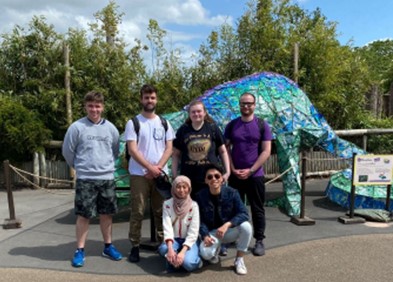
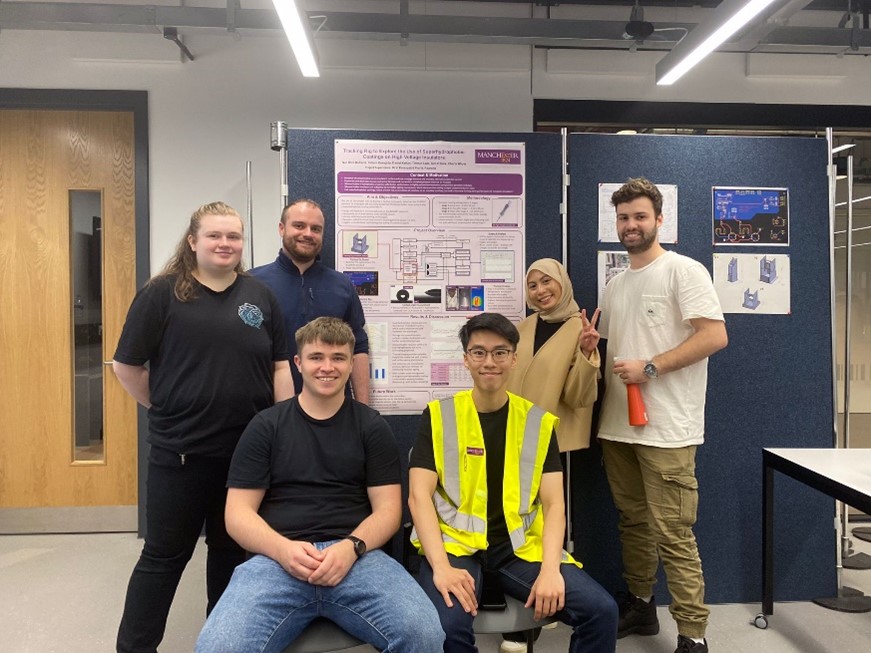
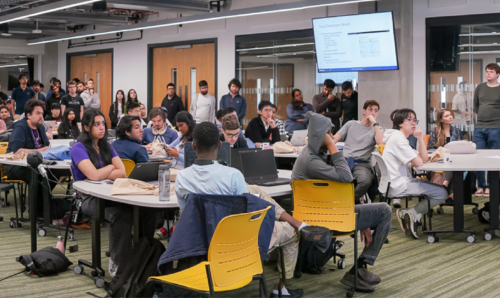
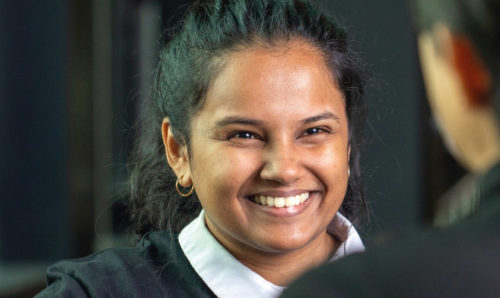
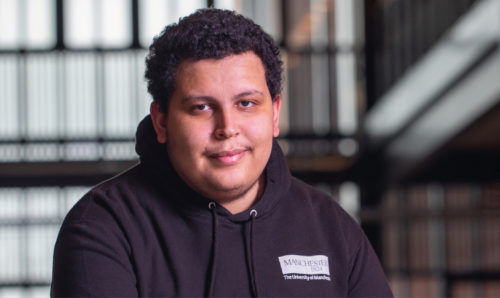
Leave a Reply